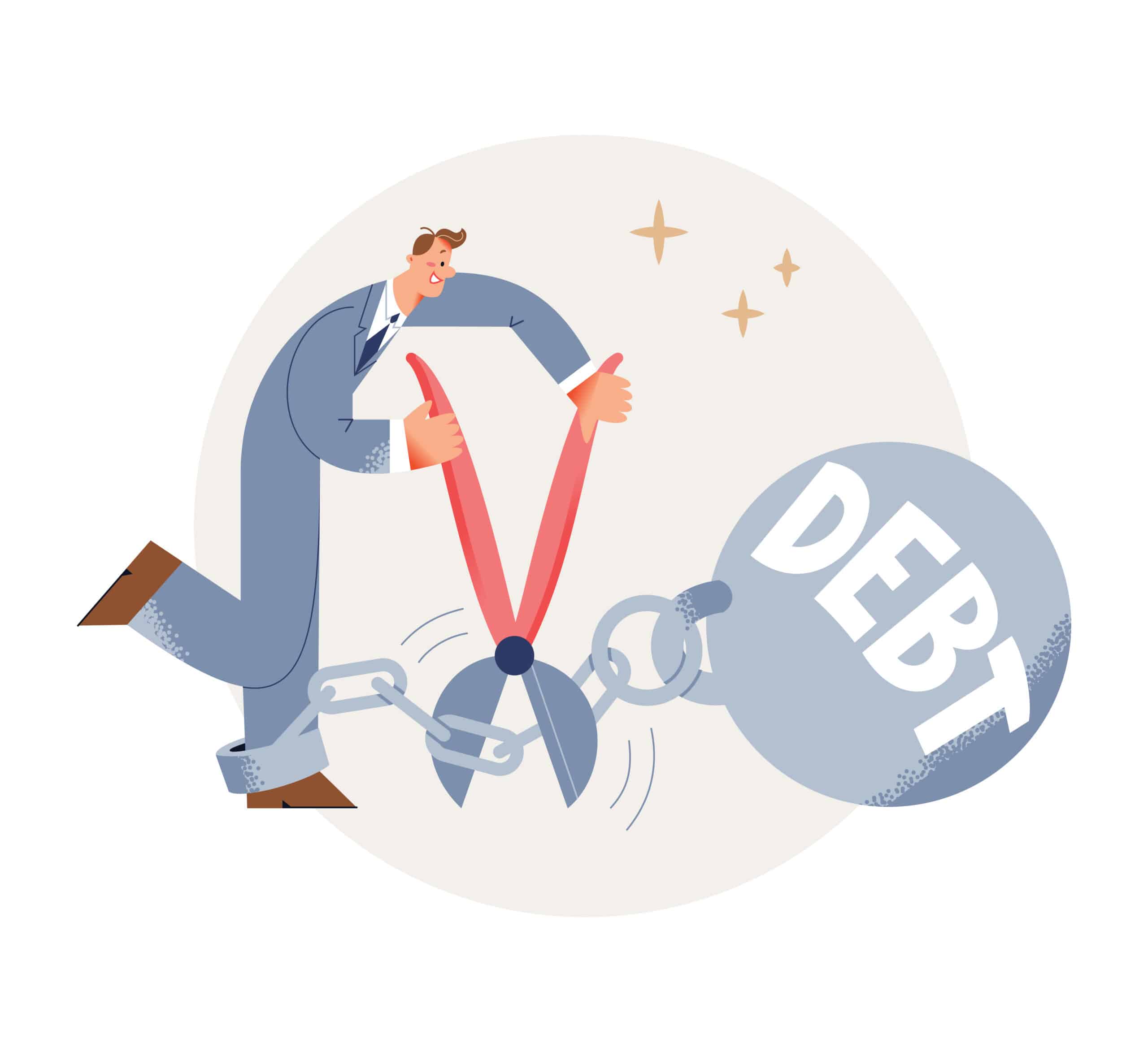Debt Consolidation: 7 Benefits and 5 Risks You Need to Know

Anúncios
Debt consolidation is a financial strategy that involves combining multiple debts into a single payment, potentially simplifying your financial life and helping you save money. This method can be particularly beneficial for those struggling with multiple debt obligations, but it’s important to understand both the benefits and risks before deciding whether it’s the right approach for your financial situation.
What is Debt Consolidation?
Debt consolidation means merging several debts—such as credit card balances, personal loans, and medical bills—into a single loan or payment plan. Instead of dealing with various due dates, amounts, and interest rates, the borrower makes one payment with a unified interest rate, which can streamline finances and reduce the complexity of managing multiple debts.
Anúncios
Types of Debt Consolidation Options

There are several methods to consolidate debts, including:
Anúncios
- Debt Consolidation Loans:
Personal loans designed specifically to pay off multiple debts. These loans are typically offered by banks, credit unions, and online lenders. - Balance Transfer Credit Cards:
These cards allow you to transfer balances from other cards, often with a 0% interest rate for an introductory period. They can be useful for consolidating credit card debt, especially if you can pay off the balance within the promotional period. - Home Equity Loans or Home Equity Lines of Credit (HELOCs):
These loans are secured against the equity in your home, meaning they are useful for larger amounts of debt, but they come with the risk of losing your home if you default. - Debt Management Plans:
These are offered by credit counseling agencies that negotiate with creditors to reduce interest rates and fees. You then make one monthly payment to the agency, which distributes it to your creditors.
How the Debt Consolidation Process Works
Debt consolidation generally involves the following steps:
- Assess Your Debt:
Begin by listing all your existing debts, including amounts owed, interest rates, and monthly payments. - Choose a Consolidation Method:
Decide which option—loan, balance transfer, HELOC, or debt management plan—best suits your financial needs. - Apply for Consolidation:
Submit an application for the chosen consolidation option, providing necessary documentation like income verification and credit history. - Pay Off Existing Debts:
Use the new consolidation loan or credit card to pay off your existing debts. Ensure all accounts are settled. - Make a Single Monthly Payment:
Focus on repaying the new consolidated debt, following a strict repayment schedule to avoid further financial trouble.
| Benefit/Risk | Description | Type |
|---|---|---|
| Simplified Payments | Reduces the stress of managing multiple debts. | Benefit |
| Potential for Lower Interest Rates | Saves money with lower interest rates. | Benefit |
| Clear Repayment Timeline | Helps visualize when the debt will be paid off. | Benefit |
| Debt-Free Mentality | Organizes finances, improving well-being. | Benefit |
| Improved Credit Score | Regular payments may boost your credit score. | Benefit |
| Higher Overall Costs | Increases total cost due to longer repayment terms. | Risk |
| Risks with Secured Debt Consolidation | Risk of losing collateral (e.g., home) if you default. | Risk |
| Impact on Credit Score | Credit inquiry may temporarily lower your score. | Risk |
| Possibility of Accumulating More Debt | Without changing spending habits, more debt may accumulate. | Risk |
| Hidden Fees and Charges | Some options may have extra fees or penalties. | Risk |
7 Key Benefits of Debt Consolidation
Debt consolidation can bring several advantages for individuals dealing with multiple debts. Below are some of the main benefits:
- Simplified Monthly Payments:
Managing multiple debts can be overwhelming, with different due dates and interest rates. Consolidation simplifies this process by consolidating everything into one single monthly payment. This can reduce the stress and complexity of managing multiple obligations. - Potential for Lower Interest Rates:
High-interest debts, such as credit card balances, can accumulate quickly. Consolidating these debts into one loan with a lower interest rate can save you money over time and potentially lower your monthly payments. - Clear Repayment Timeline:
Consolidation often provides a structured repayment timeline, which makes it easier to see when the debt will be fully paid off. Having this predictability can be a significant motivator and help you stay focused on achieving financial freedom. - Debt-Free Mentality:
With a single payment and a defined plan for repayment, consolidating your debts can help you feel more in control of your finances. This sense of organization and clarity can reduce anxiety and improve your overall mental wellbeing. - Improved Credit Score Over Time:
By consolidating your debts and paying them off on schedule, you may improve your credit score. Consolidation can lower your credit utilization rate and help you avoid late payments, which positively affects your credit score. - Reduced Financial Stress:
With one payment to focus on, you can avoid missing deadlines and late fees, reducing financial stress and anxiety. - Opportunity to Save Money:
If you qualify for a consolidation loan with a lower interest rate, you can save money on interest over the long term, making consolidation a cost-effective strategy in the long run.
5 Important Risks to Consider
While there are clear advantages, debt consolidation also carries several risks. Here are the key risks to be aware of:
- Higher Overall Costs Due to Extended Repayment Terms:
Although consolidating your debts may lower your monthly payments, it could extend the repayment period. A longer term means you may end up paying more in interest over time, even if the interest rate is lower. - Risks with Secured Debt Consolidation Loans:
If you opt for a secured loan (such as using your home as collateral), you risk losing the asset if you default on the loan. This is a significant risk, particularly if your debts are already large. - Impact on Credit Score During the Application Process:
Applying for a debt consolidation loan often involves a credit check, which can temporarily lower your credit score. Additionally, if you miss payments on the new loan, your credit score can suffer further damage. - Possibility of Accumulating More Debt:
If you don’t address the spending habits that led to the debt in the first place, consolidation may only be a temporary fix. Without changing your financial behavior, you might accumulate more debt after consolidation. - Hidden Fees and Charges:
Some consolidation methods, like balance transfer cards, may come with hidden fees, such as annual fees or high penalty charges for late payments. These additional costs can negate some of the benefits of consolidating your debt.
Who Should Consider Debt Consolidation?
Debt consolidation can be an effective strategy for individuals who meet certain criteria:
- Those with Multiple High-Interest Debts:
Consolidation is most useful for individuals with several high-interest debts, such as credit card balances or personal loans, as it helps simplify payments and lower interest rates. - Those Who Qualify for a Lower Interest Rate:
If your credit score has improved since you initially took out your debts, you may qualify for a consolidation loan with a better interest rate, which can save you money. - Those Needing a Clear Repayment Plan:
Consolidation provides a structured approach to paying off debts, which can help individuals who struggle with tracking multiple debts.
Credit Score and Other Qualifying Factors
Your credit score is an essential factor in determining whether you qualify for debt consolidation and what terms you receive. Here are the key factors:
- Good to Excellent Credit Scores:
A higher credit score (usually 670 or above) increases your chances of qualifying for a debt consolidation loan with favorable terms, such as lower interest rates. - Stable Income:
Lenders will also consider your income and employment stability to ensure you can make consistent monthly payments. - Debt-to-Income Ratio:
A lower debt-to-income ratio (DTI) improves your chances of qualifying for a consolidation loan. Lenders typically prefer a DTI below 36%.
Alternatives to Debt Consolidation
If debt consolidation isn’t suitable for you, there are other methods for managing and paying off debt:
- Debt Snowball Method:
The debt snowball method involves paying off your smallest debts first, then applying those payments to larger debts as you go. This method can be motivating, as you see progress quickly. - Debt Avalanche Method:
The debt avalanche method focuses on paying off high-interest debts first. This strategy minimizes the amount of interest paid over time, saving you money in the long term. - Credit Counseling and Debt Management Plans:
A credit counselor can help you create a debt management plan (DMP) that consolidates your debts without taking out a new loan. A DMP negotiates with creditors to reduce interest rates and fees. - Addressing Spending Habits:
Regardless of the method you choose, it’s crucial to address the underlying spending habits that led to your debt. Building a realistic budget and practicing mindful spending are essential for maintaining financial health.
How to Make an Informed Decision About Debt Consolidation
Before committing to debt consolidation, evaluate your financial situation carefully:
- Assess Your Debts:
List all your debts, interest rates, and payments to understand the full scope of your financial obligations. - Compare Interest Rates:
Look at the interest rates on your current debts and compare them with the rates offered by consolidation options. Consolidation should result in lower rates to be worthwhile. - Consider Your Credit Score:
Your credit score will impact the interest rates and terms available to you. A higher score can unlock better options. - Calculate Potential Savings:
Determine if consolidation will actually save you money in the long term by comparing the total costs with your current debts. - Think Long-Term:
Consider how debt consolidation fits into your long-term financial goals. If it helps you regain control of your finances, it could be a valuable tool.
Conclusion
Debt consolidation can be an effective solution for individuals who need to simplify their debt management, reduce monthly payments, and potentially save money on interest. However, it’s important to carefully weigh the benefits and risks, assess your eligibility, and choose the right option based on your financial situation. By understanding the ins and outs of debt consolidation, you can make an informed decision that helps you achieve financial freedom.